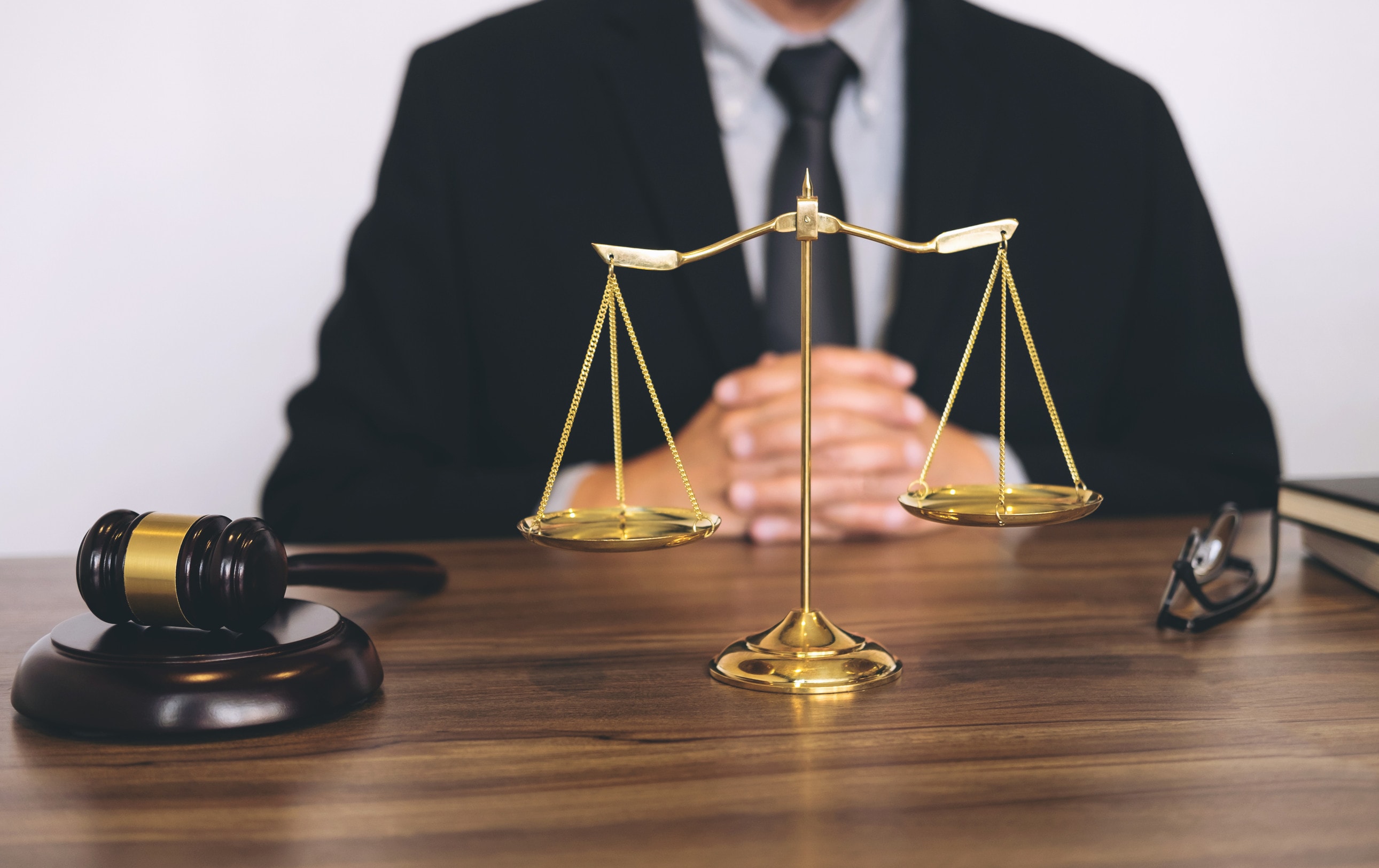Is My Employer Responsible For A Workplace Injury?
According to statistics published by the UK’s workplace regulator, the Health and Safety Executive (HSE), with information from the Labour Force Survey (LFS), approximately 604,000 workplace injuries were reported in the year 2023/24.
Not all of these injuries will be the fault of the employer. But if you’re asking yourself, “How do I know if my employer is responsible for an accident at work?” then you’re not alone. In this guide, we’ll explore everything you need to know about how to establish whether or not your employer is responsible for your injuries.
Key Takeaways
- Your employer has a responsibility for your health and welfare while you’re at work.
- Should your employer fail to take health and safety seriously, they could be liable should you suffer harm
- You can still claim even if you were partially responsible for an accident at work
- A No Win No Fee solicitor can help you claim with no upfront or hidden fees
Our team of advisors are here to help. Keep reading to learn more, or get in touch with us today to start your free consultation by:
- Calling us on 020 3870 4868
- Using the live chat feature
- Contacting us online
Select A Section
- How Do I Know If My Employer Is Responsible For An Accident At Work?
- Understanding Your Employer’s Duty Of Care
- Steps Employers Can Take To Keep You Safe While Working
- What Constitutes A Workplace Accident?
- What If I Was Partially Responsible For The Accident?
- If I Make An Accident At Work Claim, Will I Lose My Job?
- Can UKLaw Help Me Find Out If My Employer Is Responsible For My Injuries?
- More Information
How Do I Know If My Employer Is Responsible For An Accident At Work?
To make an accident at work claim, you first need to know whether or not your employer is responsible for your injuries. But how do you find this out?
The easiest way to find out if your employer is responsible for your accident is to see if you can prove that negligence occurred. We’ll go into more detail about what negligence is and how it can happen later on in this guide, but essentially, it means that they went against established health and safety rules or legislations, and this caused you to get hurt.
Health And Safety Laws
There are many health and safety laws in place to protect you while you’re working, including:
- The Health and Safety at Work, etc. Act (HASAWA) sets out what your employer should do to keep you safe at work.
- The Control of Substances Hazardous to Health (COSHH) helps control workplace exposure to hazardous substances.
- The Provision and Use of Work Equipment Regulations 1998 (PUWER) helps regulate the use of equipment and machinery in the workplace.
- The Work at Height Regulations 2005 set out the steps employers should take before asking workers to work at height.
These are only a few examples of legislation that keep you safe in the workplace. Keep reading for more information on the question, “How do I know if my employer is responsible for an accident at work?”
Understanding Your Employer’s Duty Of Care
Under the HASAWA, mentioned above, your employer owes you a duty of care. This means that they have a legal responsibility to keep you safe while working.
To fulfil this duty of care, your employer needs to take all reasonably practicable steps to keep you safe while you carry out your duties. We’ll explore some of these steps a little later in this guide.
What Is Negligence?
Earlier, we mentioned that the best way to answer the question “How do I know if my employer is responsible my injuries?” is to establish whether or not negligence occurred. But what is negligence?
In terms of personal injury law, negligence occurs when:
- You are owed a duty of care
- This duty of care is breached
- You are injured as a result
You need to be able to establish negligence in order to make an accident at work claim. Contact our team today for more information on employer liability.
Steps Employers Can Take To Keep You Safe While Working
The steps that your employer is required to take to fulfil their duty of care can vary, depending on what industry you work in and what your role consists of. For example, the steps taken by the employer of a warehouse would differ significantly from the steps taken by an office manager.
Some common steps that employers can take to keep you safe include:
- Providing free and adequate training if you need it to do your job safely
- Undertaking risk assessments to identify and mitigate risks
- Making sure that walkways are clear of clutter, trailing cables, and wires
- Providing personal protective equipment (PPE) that is free and in good working order
- Making sure that spillages are either cleared up or signposted with a wet floor sign
It’s important to remember that these steps are just examples, and the things that your employer is expected to do can vary depending on your job. To find out if your employer acted negligently, contact our team today.
What Constitutes A Workplace Accident?
Below, we look at some examples of accidents in the workplace that could result in accident at work compensation. For example, this could look like:
- A worker in a shop is asked to load and unload heavy boxes from a delivery van, but their employer refuses to provide manual handling training. This causes them to lift the box wrong, and they suffer a serious back injury.
- A warehouse worker is asked to use a forklift that they previously reported to be faulty. Their employer dismisses their concerns and tells them that they must use it. The faulty breaks lead to a forklift crash, causing a brain injury and multiple broken bones.
- A builder on a construction site is not given a hard hat before they start work. They are then hit in the head with a falling object, fracturing their skull.
Do Accidents At Work Need To Be Reported?
Certain reportable accidents at work need to be reported to the Health and Safety Executive (HSE) under The Reporting of Injuries, Diseases and Dangerous Occurrences Regulations 2013 (RIDDOR). Reporting injuries under RIDDOR is an important way of making sure health and safety issues are addressed.
However, even if your accident doesn’t meet the criteria for a reportable incident, you can still record what happened in the accident report book. Any workplace with ten or more employees needs to have an accident book, and reporting the accident can help make the workplace safer for others.
To learn more about the answer to the question, “How do I know if my employer is responsible for an accident at work?” contact our team today. Or, read on to find out what happens if you were partially responsible for your injuries.
What If I Was Partially Responsible For The Accident?
In some cases, you may still be able to make a workplace injury claim, even if you were partially responsible for what happened.
Split Liability
If you contributed to the accident, then you could potentially make a split liability claim. For example, if your employer asked you to drive a faulty forklift, but you were not paying enough attention to where you were driving, this would count as split liability.
In this case, your compensation would be reduced depending on how responsible you are found to be. For example, if you are found to be 25% responsible, then your compensation would be reduced by 25%.
Contributory Negligence
If you contributed to your injuries, then you could potentially make a contributory negligence claim. For example, if your employer asked you to drive a faulty forklift but you did not use the provided safety harness, which meant you suffered more severe injuries after being thrown from the vehicle.
To find out how making a contributory negligence claim could affect your accident at work compensation, contact our team today.
If I Make An Accident At Work Claim, Will I Lose My Job?
People often ask us if they can be sacked for making an accident at work claim. Legally, your employer shouldn’t fire you for making an accident at work claim, especially if you had no part in the accident or your injuries. You have the right to claim compensation if negligence occurs, and most employers know this.
If you’re worried about making a compensation claim, talk to one of our friendly advisors today. They can provide free advice and help you decide how to proceed through a no-strings-attached consultation.
Can UKLaw Help Me Find Out If My Employer Is Responsible For My Injuries?
Are you still wondering, “How do I know if my employer is responsible for my injuries?” If so, we can help. At UKLaw, we work with a panel of specialist accident at work solicitors with decades of experience in securing compensation for their clients.
Our No Win No Fee panel works under the terms of a Conditional Fee Agreement (CFA), which means you don’t pay any upfront or ongoing fees for their work, and you only pay a success fee if you win your claim. The success fee is taken straight from your compensation as a small, legally capped percentage.
They can help with every aspect of your accident at work claim, from proving your case with evidence to negotiating a settlement and connecting you with one of our expert rehabilitation partners to help with your recovery.
Plus, when you get in touch with our team, our advisors can offer you a free, no-strings-attached consultation. During this time, they can help you find out if your employer is responsible for your injuries, give you free advice, and tell you whether or not you could be owed compensation.
Contact Our Team Today
If you’re ready to find out how a specialist accident at work solicitor from our panel could help you, get in touch with our team today by:
- Calling us on 020 3870 4868
- Using the live chat feature
- Contacting us online
More Information
For more helpful information on making an accident at work claim:
- Learn how to make a serious accident at work claim
- Find out how to claim for an accident at work if you’re self-employed
- Get information on claiming for a workplace injury if you work part-time
Or, to get further resources:
- General health and safety information from the HSE
- Information on administering first aid from the NHS
- Find out if you’re eligible for Statutory Sick Pay (SSP) from GOV.UK
Thank you for reading our guide. We hope we’ve answered the question, “Is My Employer Responsible for an accident at work?”
Also Read: How Can I Prove Employer Liability For An Accident At Work Claim?









